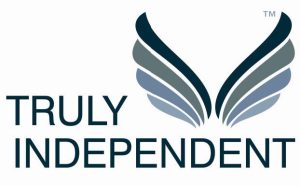What is Equity Release?
There is often a lot of misunderstanding about what Equity Release is and much of the terminology and jargon used doesn’t really help.
In simple terms it is a mortgage raised on your own home, the amount the lender will consider giving to you is based on the youngest applicant's age, which has to be a minimum of 55 or older, and the
current value of your home. Typically if you decide to withdraw a smaller amount of money, this will cost you less in terms of the interest rate the lender will charge than if you withdrew a much larger amount of money.
As such, it is important only to withdraw the amount of money you need so that you may then have the option in the future to withdraw more funds if needed.
Lifetime mortgages, Equity Release and Retirement Interest Only Mortgages…
Confused yet?
There seem to be three different phrases for what appears to be the same thing, which is naturally going to cause confusion! When looking at later life lending, which is deemed to be any mortgage where the applicant is aged 55 or over that the loan will continue to exist potentially into their retirement, there are in fact only two types of mortgage, one which requires a monthly payment and
one doesn’t!
The mortgage that does require a monthly payment to the lender is called a retirement interest-only mortgage, and naturally, as there will be an ongoing monthly payment, the lender will need to assess your income and expenditure to ensure that the loan is affordable, not just now but also in the future when potentially your earnings may be reduced and/or interest rates are higher than now, which given we have benefitted from the lowest interest rates the UK has seen for the last decade, is a very real risk to take into account.
The mortgage where no monthly payment is due is called an Equity Release mortgage. Interest is still due every month to the lender. It is typically arranged so that the interest rate is fixed for life, but instead of you paying that to the lender each month, they will add it to the mortgage balance. However, even with Equity Release, if you would like to make a partial or full payment into the mortgage to either prevent or reduce the build-up of interest, you can do that with most lenders' products, as they will allow you to repay up to 10% of the mortgage balance back per annum penalty-free.
So there are basically just two main types of later life loans, one with payment and one without and seeking independent advice as to which is the most suitable for your own circumstances is highly recommended.
We all see some very good advertising on TV and also hear it on the radio by large national firms specialising in Equity Release. They offer very efficient, large-volume processes to make arranging such loans as easy as possible. We believe that because the decision to take out an Equity Release is such an important decision everyone should seek fully independent advice, ideally where you can meet the adviser face to face.
As a local adviser, that is what we offer our clients, but also an ongoing relationship with someone that you can talk to in case anything changes in the years ahead without having to telephone a call centre or wonder who you should be speaking to. We offer a personal service to each of our clients, many of whom have now been with us for over three decades, and many of which we are pleased to also regard as friends, having gotten to know them for many years.
Ian Watters Financial Adviser
I am a local independent adviser who will take into account your personal circumstances, preferences and future plans into account when I offer you my advice.

